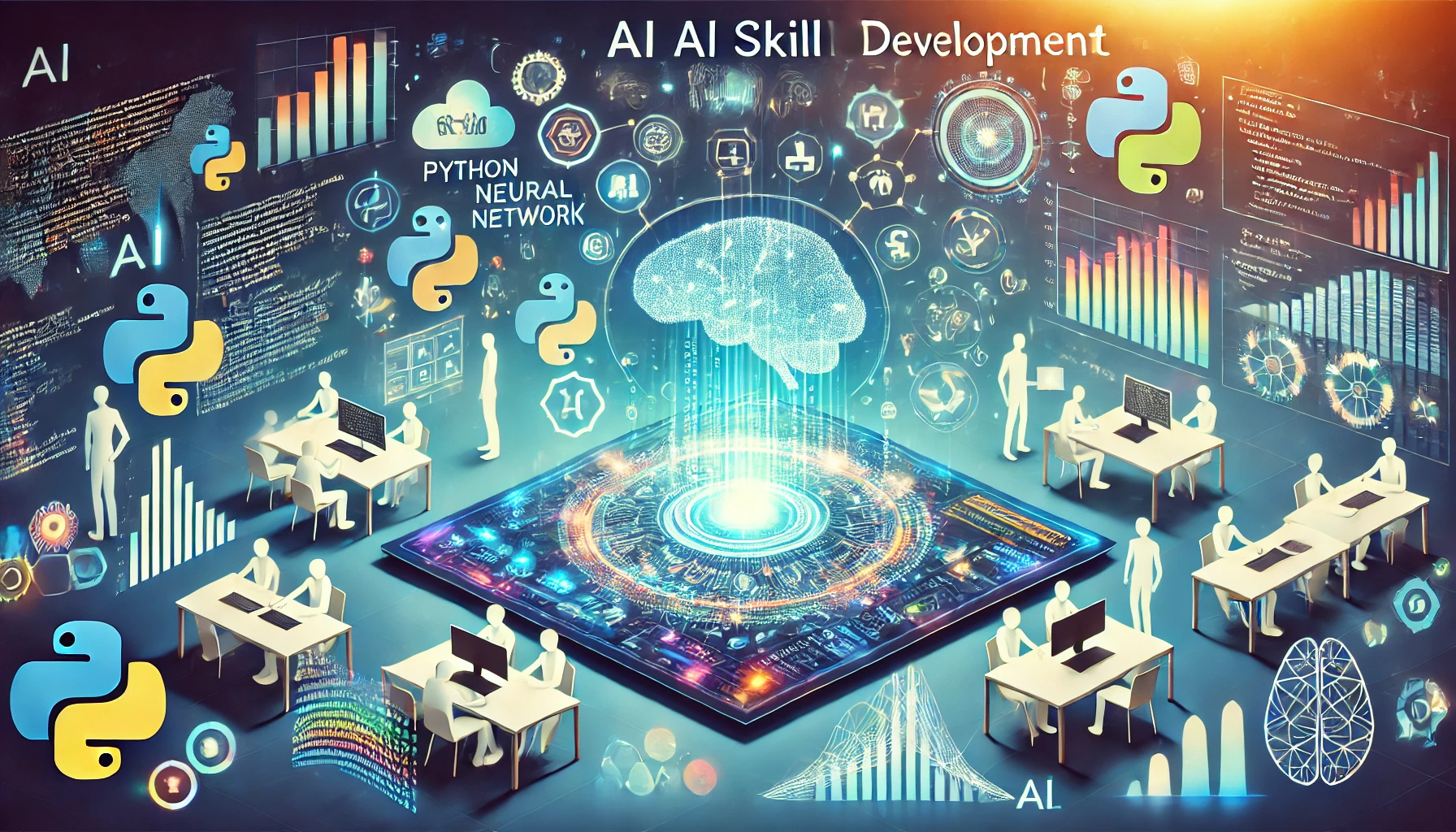After speaking with the AI and researching further, I’ve been exploring the evolving AI era, where we can foresee certain jobs being performed much more efficiently by AI than by humans.
How far can we go in replacing humans with AI? So far, not very far. While AI has brought significant improvements to human capabilities, it has yet to achieve complete replacement in most fields. Of course, many may disagree with me, claiming that their 50,000 sq. ft. warehouses are entirely managed by AI.
This article was made by the help of AI with my personal modification
To thrive in any aspect of AI, you need a diverse set of technical, analytical, and soft skills. Below is a breakdown of the core skills essential across various AI domains:
To thrive in any aspect of AI, you need a diverse set of technical, analytical, and soft skills. Below is a breakdown of the core skills essential across various AI domains:
After reading this article rate how much you agree with all or some of the skills
1. Programming Skills
- Python: The most popular language for AI due to its extensive libraries (TensorFlow, PyTorch, Scikit-learn).
- R: Useful for statistical analysis and data visualization.
- C++: Often used for performance-intensive AI applications, like robotics.
- Java & Scala: Important in big data and enterprise-level AI systems.
2. Mathematics & Statistics
- Linear Algebra: Critical for understanding neural networks, especially concepts like vectors, matrices, and tensor operations.
- Probability & Statistics: Essential for machine learning algorithms, hypothesis testing, and probabilistic models.
- Calculus: Needed for optimization problems in AI, such as gradient descent.
- Discrete Mathematics: Important for understanding graph theory and combinatorics, especially in AI applications like natural language processing (NLP) and computer vision.
3. Machine Learning (ML) Fundamentals
- Supervised, Unsupervised, and Reinforcement Learning: Core paradigms in ML.
- Feature Engineering: Crafting and selecting the right features for model training.
- Model Evaluation & Tuning: Understanding metrics (accuracy, precision, recall, F1 score) and methods (cross-validation, hyperparameter tuning).
4. Data Handling & Processing
- Data Wrangling: Cleaning, transforming, and preparing raw data.
- Data Visualization: Tools like Matplotlib, Seaborn, and Tableau to visualize insights.
- Big Data Tools: Familiarity with frameworks like Apache Spark and Hadoop for large-scale data processing.
5. Deep Learning (DL)
- Neural Networks: Understanding architectures like feedforward, convolutional (CNNs), and recurrent (RNNs, LSTMs) networks.
- Frameworks:
- TensorFlow
- PyTorch
- Keras
- Transfer Learning: Applying pre-trained models to new tasks.
- Generative Models: GANs (Generative Adversarial Networks) and VAEs (Variational Autoencoders).
6. Natural Language Processing (NLP)
- Text Preprocessing: Tokenization, stemming, lemmatization.
- Sentiment Analysis & Topic Modeling: Applications of NLP in business and research.
- Transformers: Understanding BERT, GPT models, and their applications.
- Speech Recognition: ASR (Automatic Speech Recognition) systems.
7. Computer Vision (CV)
- Image Preprocessing: Techniques like normalization, resizing, and data augmentation.
- Object Detection & Recognition: Using models like YOLO, SSD, and Mask R-CNN.
- Image Segmentation: Techniques for dividing an image into meaningful parts.
- OCR (Optical Character Recognition): Extracting text from images.
8. AI Ethics & Fairness
- Bias Mitigation: Understanding how to identify and reduce bias in models.
- Transparency: Creating interpretable models and explaining decisions.
- Privacy: Ensuring data privacy and compliance with regulations (GDPR, HIPAA).
9. Cloud & Deployment
- Cloud Platforms: Familiarity with AI services on AWS, Google Cloud, and Azure.
- Model Deployment: Tools like Flask, FastAPI, and Docker for serving models.
- MLOps: Understanding CI/CD pipelines, version control (Git), and monitoring deployed models.
10. Problem-Solving & Critical Thinking
- Ability to define AI problems clearly and choose appropriate techniques.
- Thinking creatively about how AI can be applied to real-world challenges.
11. Soft Skills
- Communication: Explaining complex AI concepts to non-technical stakeholders.
- Collaboration: Working with cross-functional teams (data engineers, product managers, domain experts).
- Continuous Learning: Staying updated with the latest research papers, tools, and technologies.
Additional Specialized Skills by AI Domain
| Domain | Specialized Skills |
| Robotics | Path planning, sensor integration, ROS (Robot Operating System) |
| Reinforcement Learning | Markov Decision Processes (MDPs), Q-learning, policy gradients |
| AI in Cybersecurity | Threat detection, anomaly detection, adversarial AI |
| AI in Healthcare | Medical imaging analysis, genomics data handling |
| AI in Finance | Time-series forecasting, fraud detection |

